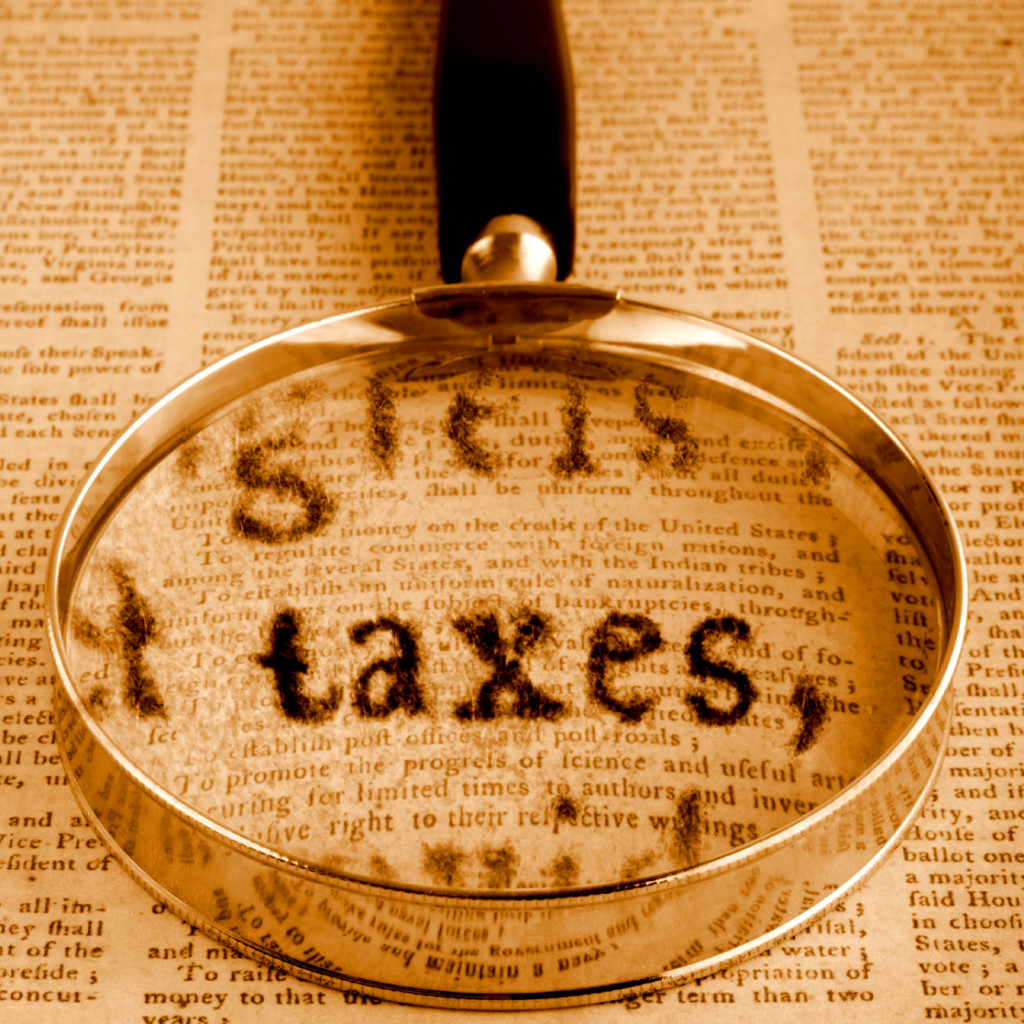No more income tax, corporation tax and tedious debate: a universal sales tax for the 21st Century.
And so the great election auction has begun: which of the parties will charge us the most, and which can perform the best tax card trick. Politicians will spend the next few weeks arguing endlessly about how much tax to charge, but hardly a word will be said about the method of extraction from your wallet or purse. Rather than arguing about “how much?” we should think about “how?”.
Because in the end, all tax, whatever it’s called, comes out of that increasingly battered wallet or purse. Companies, for instance, don’t actually pay tax, you pay it for them when you buy their goods or services; they just price in tax as another overhead. All that national insurance, corporation tax and even the income tax of their employees forms part of the price of everything you buy, with VAT on top.
So if all taxes, including VAT, form part of the price of the stuff we buy, why do we bother to charge and collect them separately? What would happen if we were to lump everything together, phase out all taxes and just charge higher VAT? Well, several things.
First, everyone would receive their income gross. No more PAYE or self-assessment and, of course, no further need for the Inland Revenue. All that money and all those people currently wasted on arguing about the dozens of different taxes would be redeployed. Billions of pounds and thousands of people, tax collectors (£5 billion) and accountants (at least another £5 billion) liberated for investment and production. Tax would be collected painlessly in small increments if and when you buy stuff.
Second, underlying prices would fall. In brave new corporate Britain, business taxes would no longer feature, so business could drop its prices even further and still maintain their return on capital. Don’t forget they wouldn’t be shouldering the huge cost of dealing with the Inland Revenue, so that saving could go to reducing prices too. The gross price increase caused by a rise in the VAT rate would be more than offset by the savings made, and in a competitive economy these savings would be passed on to the consumer.
Third, a huge wave of international capital would crash over Britain. Corporations across the globe, fed up with having to skulk in Liechtenstein and Cayman, would joyfully relocate to the UK, bringing with them even more jobs and investment. Ask the Irish, who dropped their corporation tax rate to 12.5 per cent, and became a magnet for business.
Finally, politicians would be unable to hide behind the current Byzantine system. The Chancellor sets an annual VAT rate, and that’s it. Transparent, honest, simple and easy to understand. In other words, politically terrifying.
But surely VAT is a regressive tax that falls unfairly on the poorest? Not necessarily. Certain essential items that are already VAT-free — food, children’s clothes, The Times — could remain so, and would actually fall in price. Those with higher consumption, including the infamous non-doms, would pay more tax (although no one would need to be a non-dom, of course). Go out and buy a Bentley or a Lear Jet and you’ll make a big contribution to the Exchequer. But if you scrimp and save you will pay hardly any tax — what better incentive to cut up the credit card and open a deposit account?
“Ah, but what about the cash economy? Wouldn’t it boom?” you ask. Good point, but here’s the thing: cash is dying. Last year Marks & Spencer, along with others, stopped accepting cheques. Within my lifetime I expect them to stop accepting cash too. Cash is dirty, expensive to handle, hard to count accurately and easy to steal. Lots of businesses already exist without it. Easyjet, Amazon, iTunes: none of them handles a note or coin.
In London, public transport is now 95 per cent cashless, as use of the Oyster smartcard spreads, and there are plans afoot to use the same technology for small payments in shops. Westminster Council has rolled out totally cashless parking across the centre of the capital. Online banking is now used by close to 70 per cent of UK account holders. Only 16 per cent of 16 to 24-year-olds ever go into a bank branch.
Whichever way you look at it, cash is on the way out, and this means an indirect, universal sales tax could be on the way in, as a replacement for all direct taxes. The amount of tax collected may well be the same, but the big benefit would be an end to the mindless game of cat and mouse among politicians, corporate Britain, the Inland Revenue and the long-suffering public.

